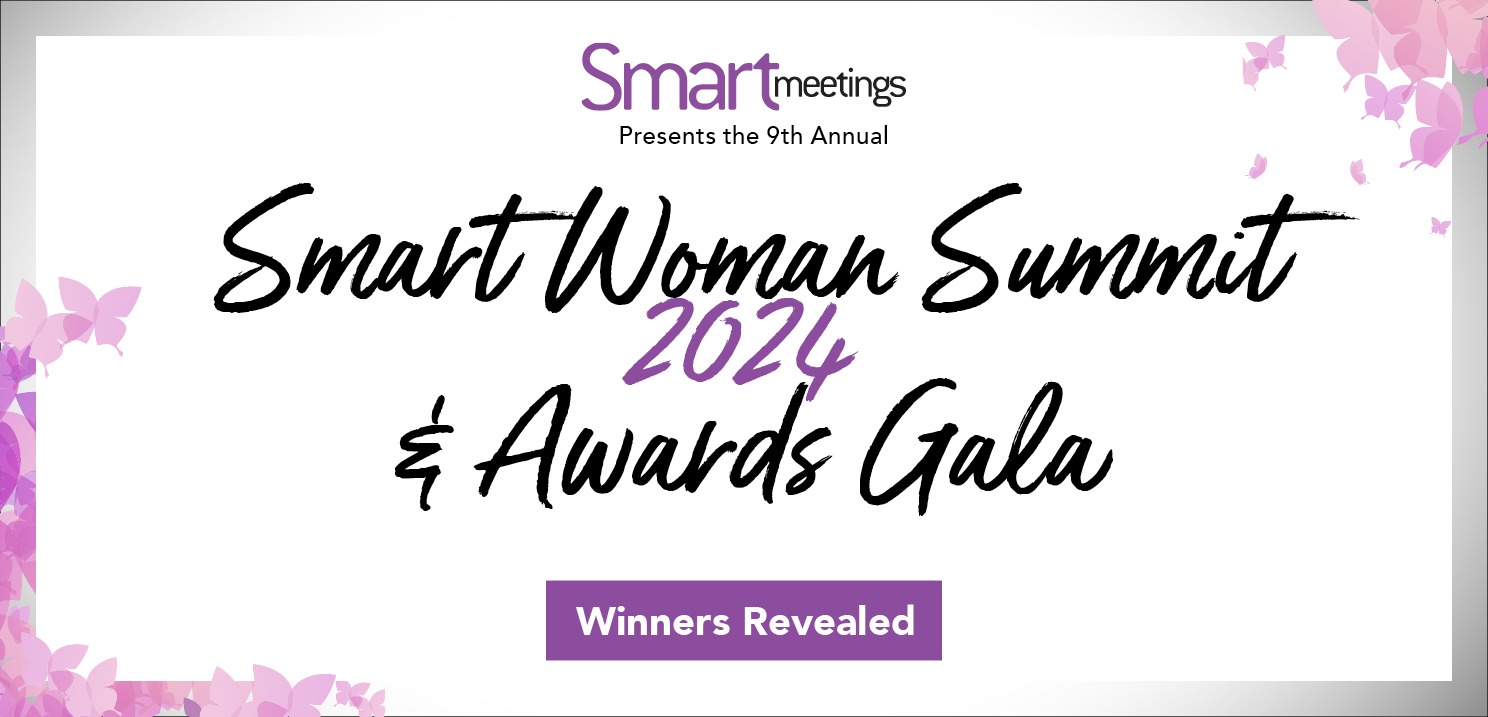The right person at the right time for meaningful connections

Empathy, Curiosity, Commitment
Smart Meetings founder Marin Bright was a passionate supporter of her beloved meetings and events industry. She was relentless in her quest to make the fabulous better. And one way she did that was by celebrating and supporting female leaders. When we lost her suddenly the month before announcing the 2024 Smart Women in Meetings Awards, we knew we had to mark her contribution to recognizing excellence in an enduring and elegant way because that was how she rolled.
The inaugural Marin Bright Award goes to Carrie Freeman Parsons, chair of the board at Freeman, a leader who spent her career moving her company and the industry into a more inclusive, strategic and attendee-friendly state. She leveraged her unique point of view to support everyone in the industry looking for a sustainable career but did even more for working mothers trying to find balance. We sat down with her to ask about the changes she has seen and her next big goal.
A Love of the People and the Business
As a third-generation leader in a company her grandfather Buck Freeman started, she said there was never a time that her family hadn’t been entwined with the family business. From going to the office on Saturdays with her dad, Don Freeman, to family vacations tied to company meetings, she grew up in the industry and I loved it. “I felt very connected and loved the people,” she said.
After toying with the idea of being a physical therapist, Freeman Parsons joined Freeman and quickly realized how impactful and diverse the industry was because there is an event for every type of group and they are used for everything from launching products to saving lives by introducing new medical procedures. “Working an event is such a team sport with lasting relationships formed between staff, facilities and clients,” she laughed. Her first one was the National Association of Home Builders and they are still a client.
A Strategic Shift
Expectations of roles and responsibilities and the final event product have changed in the more than 90 years the company has been producing conferences. “Part of our DNA is to continue growing and innovating to survive,” said Freeman Parsons. That includes growing into new markets and growing relationships with clients by bringing new products and services.
Although the company’s core job is “getting everything in the right place at the right time to execute flawlessly,” Freeman Parsons quickly learned that the risk-averse tendency that can breed has to be calibrated because not growing, evolving and responding to changes is also a threat. Expectations were changing. People weren’t happy walking up and down aisles hoping to meet someone while eating a hot dog. Better scheduling, F&B and reporting was being demanded by a new generation of attendees and sponsor. When customers started saying they were having trouble getting attendees and sponsors to commit to the same old trade show format, she realized that her company would have to take on a more strategic role because their interests were aligned. “It’s constantly looking for how do we get better? How do we serve our clients better? How do we provide more opportunities for our people? How do we think about where the industry is going? It’s a balancing act.”
That evolutionary pressure doesn’t mean the transition was easy. “When we started getting into the creative and strategic space and talking about being in the experience business, some people asked whether we are in the conference business anymore,” she admitted. By amplifying what had always done the company leaders realized that their purpose was always connecting people in meaningful ways. That included the physical experience, emotional experience…the design of the event. It wasn’t a light switch that happened overnight, but it was getting the language to understand the opportunity to help clients thrive.
Inclusionary Advances
When Freeman Parsons became a general manager, there were no female sales leaders. Any successful women were either older, empty nesters or did not have children because the commitments were so intense. She realized that because her boss was also the grandfather of her children, she could push on some of these notions around balance and start thinking about things differently. “Frankly, the business understood the value women were bringing to the organization and we need to support our events differently to enable men and women to have a personal life. Because of the nature of the business, it is hard but I think it’s doable,” she said.
Freeman Parsons added, “It may require women to set boundaries and figure out how to get the work done anyway, but if companies want good talent, they are going to have to make adjustments.” Freeman has just announced the promotion of president Janet Dell to succeed Bob Priest-Heck as CEO. He was the first non-family member CEO and she will continue to move the company into the future.
How to Go Beyond
Freeman Parsons’ message to young women getting into the industry is to go beyond the myriad details required to get everything in the right place at the right time and think about ways to create meaningful connections. “That will give you more control over your day and position you as a highly valued strategic partner,” she said.
Her goal is that “no matter how crazy the world feels, Freeman can be a place where everyone who comes through the door feels valued and is achieving their highest potential to create change in the world.”




